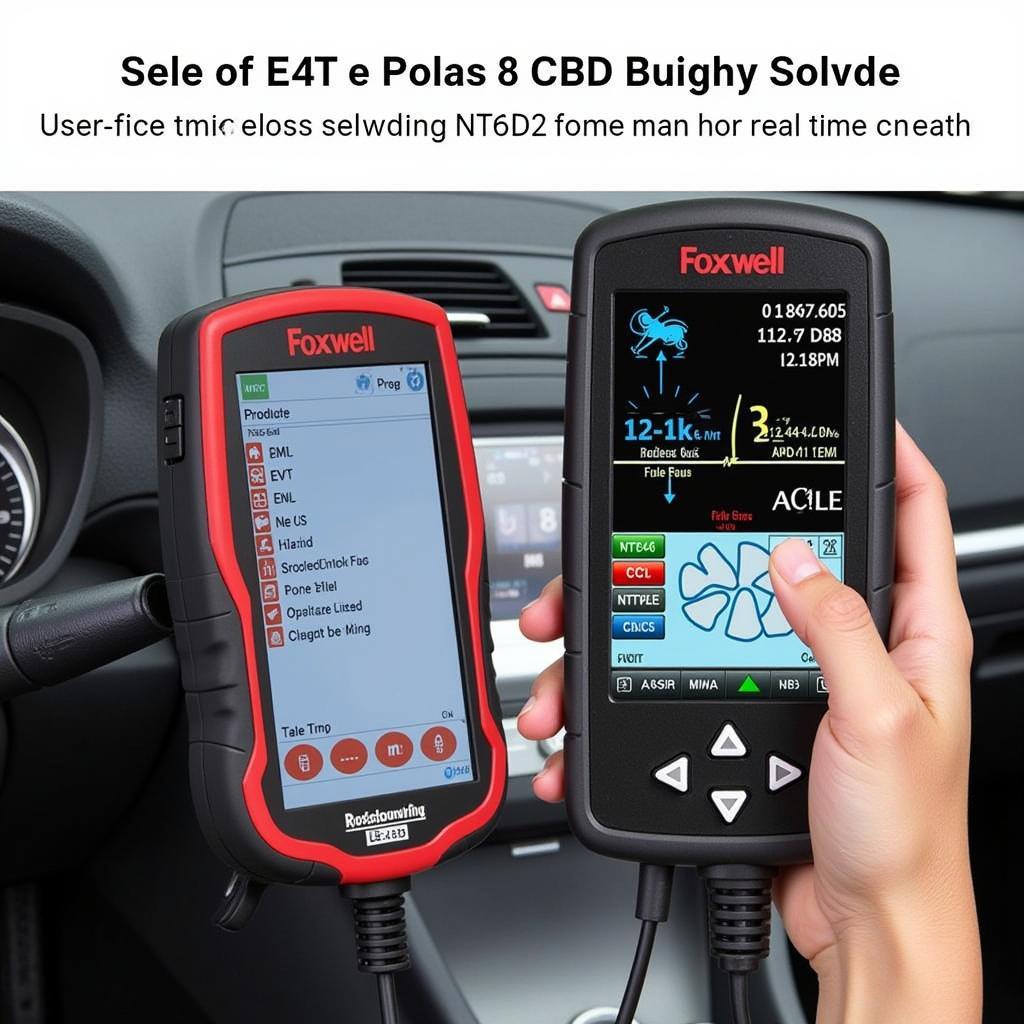Grant Foxwell Denture Clinic is a seemingly unrelated term when discussing automotive software and diagnostic equipment. This article aims to clarify the confusion and provide valuable information for car owners, repair shop managers, and automotive technicians seeking solutions for vehicle issues. While “Grant Foxwell Denture Clinic” might be a typo or a misplaced search query, we understand the frustration of encountering unexpected results. Let’s focus on what you likely intended to find: expert advice on using automotive diagnostic tools and software.
Understanding Automotive Diagnostic Software and Hardware
Modern vehicles are complex systems controlled by sophisticated electronic control units (ECUs). When problems arise, pinpointing the cause requires specialized tools and software. This is where automotive diagnostic tools come in. These tools interface with the vehicle’s ECUs, retrieving diagnostic trouble codes (DTCs) and other vital data that helps identify malfunctions. Choosing the right diagnostic software and hardware is critical for efficient and accurate troubleshooting.
Choosing the Right Diagnostic Tools: Key Considerations
Selecting appropriate diagnostic equipment can be overwhelming given the diverse options available. Here’s a breakdown of essential factors to consider:
- Vehicle Coverage: Ensure the tool supports the makes and models you work with. Some tools specialize in specific manufacturers, while others offer broader coverage.
- Functionality: Consider the features you need. Do you require advanced functions like bidirectional control, coding, or programming? Or are basic code reading and clearing sufficient?
- User Interface: A user-friendly interface is crucial for efficient operation. Look for intuitive software with clear navigation and easy-to-understand data presentation.
- Budget: Diagnostic tools range from affordable handheld devices to high-end professional systems. Determine your budget and select a tool that offers the best value for your needs.
Troubleshooting Common Vehicle Issues with Diagnostic Tools
Once you have the right tools, you can effectively diagnose and address various vehicle problems. Here’s a step-by-step guide:
- Connect the diagnostic tool: Plug the tool into the vehicle’s OBD-II port, usually located under the dashboard.
- Turn the ignition on: This powers the tool and allows it to communicate with the ECUs.
- Read DTCs: The tool will scan for stored DTCs, which are codes that indicate specific malfunctions.
- Interpret DTCs: Use a reliable source to understand the meaning of the retrieved DTCs.
- Perform additional tests: Based on the DTCs, perform further diagnostic tests as needed. This may involve checking sensor readings, actuating components, or monitoring live data.
 OBD-II Port Location in Different Vehicles
OBD-II Port Location in Different Vehicles
Why Accurate Diagnostics are Essential
Accurate diagnostics are the foundation of effective repairs. Misdiagnosis can lead to unnecessary part replacements, wasted time, and increased expenses. Using the right tools and following proper procedures ensures accurate results, leading to efficient and cost-effective repairs.
“Accurate diagnostics are like having a roadmap to the problem. Without it, you’re just wandering aimlessly,” says John Miller, a seasoned automotive technician with 20 years of experience.
Staying Updated with the Latest Automotive Technology
The automotive industry is constantly evolving, with new technologies emerging regularly. Staying updated with the latest advancements is crucial for effectively diagnosing and repairing modern vehicles. Investing in training and continuing education is essential for staying ahead of the curve.
Investing in Your Future: The Importance of Continuous Learning
“The automotive landscape is constantly changing. Continuous learning is no longer a luxury, it’s a necessity for survival in this industry,” emphasizes Dr. Sarah Chen, an automotive electronics expert.
“Think of it like this: your diagnostic tools are only as good as the person using them. Invest in your knowledge and skills, and you’ll be equipped to handle any challenge,” adds Miller.
Conclusion: Embracing Automotive Technology
While the search term “Grant Foxwell Denture Clinic” might have led you here unintentionally, we hope this article has provided valuable insights into the world of automotive diagnostics. Choosing the right tools, understanding their capabilities, and staying updated with the latest technologies are essential for effective vehicle troubleshooting and repair. Connect with ScanToolUS at +1 (641) 206-8880 or visit our office at 1615 S Laramie Ave, Cicero, IL 60804, USA for further assistance.

